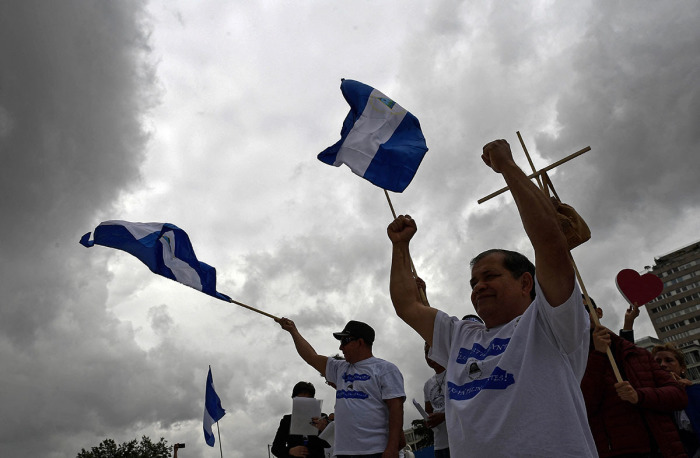
A Catholic lawyer has died in police custody in Nicaragua, the second such death in the span of a week. The incident is the latest in a series of disappearances and alleged abuses under the regime of President Daniel Ortega and Vice President Rosario Murillo.
Carlos Cárdenas Zepeda, a legal advisor to the Nicaraguan Episcopal Conference, was detained for the second time on Aug. 19 at his home in Managua. Twelve days later, on Aug. 30, his family was summoned by officials to identify his body, after being kept in the dark about his whereabouts, El País reported.
Cárdenas Zepeda’s body was reportedly found bearing visible signs of physical torture.
The case followed the death of another political prisoner, Mauricio Alonso Petri, a 64-year-old man whose body was found in the morgue after 38 days of enforced disappearance. He had been taken without explanation, and his family was only contacted for identification and immediate burial, under police surveillance.
Both deaths occurred amid an intensification of short- and long-term enforced disappearances.
The escalation began around July 19, when Ortega and Murillo marked the 46th anniversary of the Sandinista revolution, launching a new wave of arrests seen as part of a larger succession effort.
The Mechanism for the Recognition of Political Prisoners, a monitoring group, recorded at least 33 arrests during that period. Five of those cases involved entire families, including a 12-year-old girl detained along with her parents in Jinotepe, shortly after the state confiscated the Catholic-run Colegio San José school on Aug. 12.
Relatives of detainees have refrained from going public out of fear. One source close to the families was quoted saying that police enter homes without warrants and make arrests regardless of age. Anyone who intervenes or questions the authorities is threatened with imprisonment.
Some of those arrested are being held at the Directorate of Judicial Assistance, also known as El Chipote Nuevo.
Families allege that detainees are being tortured. One source was quoted saying that those held there have undergone intimidating interrogations and physical assaults, with signs of torture observed on some detainees.
Among the cases that drew public attention was that of 30-year-old doctor Yerri Estrada, arrested at his hospital in Granada on Aug. 13. His mother, Rosa Ruíz, who has been searching for him since, believes he was targeted for his role in protests and as a member of the opposition coalition Blue and White National Unity.
She was told he is at El Chipote Nuevo and that his fingernails had been torn off, his fingers bandaged from electric shocks, and his face swollen and disfigured.
Of the 73 political prisoners being held in Nicaragua, nearly half are unaccounted for, according to the Mechanism for the Recognition of Political Prisoners.
Cárdenas Zepeda’s death brings the number of known fatalities in custody under Ortega’s regime to at least six since 2019.
Two of the previous victims were prominent Sandinistas: Hugo Torres, who had once saved Ortega’s life, and Humberto Ortega Saavedra, the president’s brother and a retired general who had distanced himself from the government.
A report by a coalition of exiled NGOs, released days after Alonso Petri’s death, documented torture methods, including simulated drowning, beatings, hanging, forced positions, and sexual violence, reportedly used by Nicaraguan authorities. Other tactics cited were threats to family members, sleep deprivation, and extreme food and water restrictions.
The Catholic Church has long been at odds with the Ortega administration, particularly since the 2018 protests over pension and social security reforms. That year, some churches sheltered student protesters and faced reprisals. In 2019, the government revoked the legal status of La Roca de Nicaragua Church Association.
In March of this year, Nicaragua withdrew from the United Nations Human Rights Council, two days after a U.N. report accused the regime of suppressing human rights and religious freedom. U.N. expert Ariela Peralta said at the time that the Nicaraguan government appeared to be “at war with its own people,” a claim the administration denied, calling the report “slander.”
Religious institutions, particularly Catholic ones, have been disproportionately affected by a 2018 law regulating foreign funding for NGOs. That law has enabled the government to shut down thousands of organisations. Catholic groups have faced bans on processions, close surveillance, and restrictions on clergy movement and activities, according to the U.K.-based group Christian Solidarity Worldwide.
In a report titled “Total Control: The Eradication of Independent Voices in Nicaragua,” CSW documented 222 cases of religious persecution, including the arbitrary detention of 46 religious leaders in 2024. Some were released quickly, while others remain in custody.















